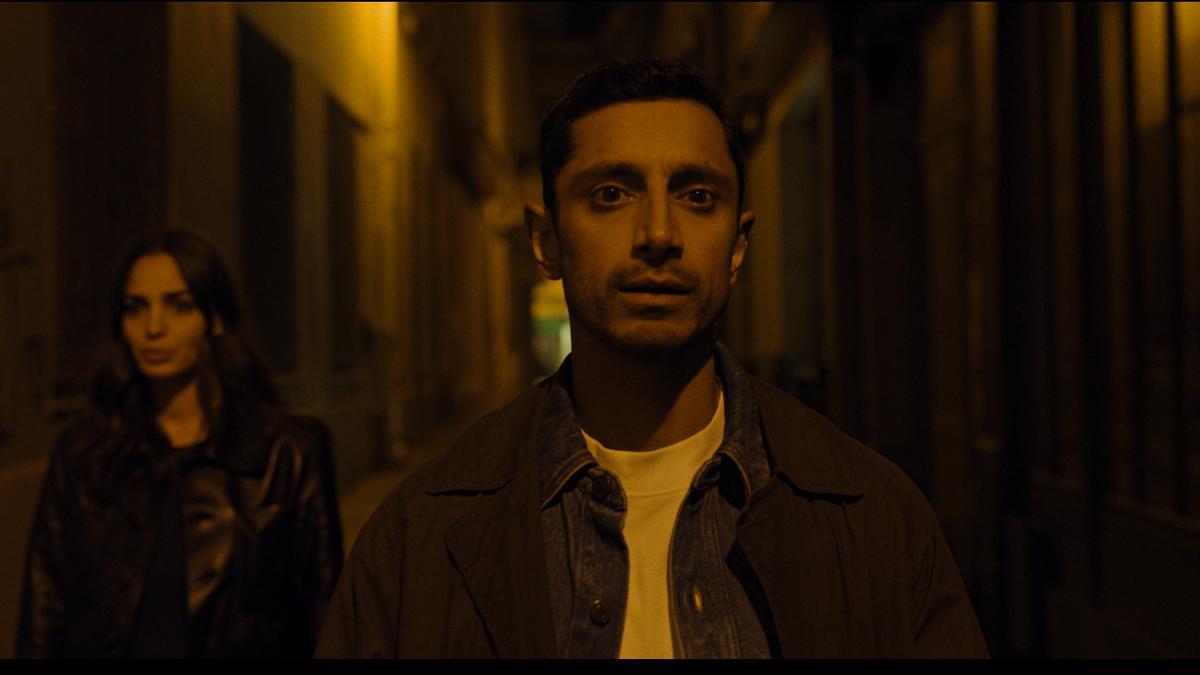
The streets of Paris are immortalized in cinema as the city of lights and amour. However, in Yann Demange’s new short film “Dammi,” the French capital gets a gritty, raw makeover. The French-Algerian filmmaker flips the script on stereotypical Parisian clichés, presenting a city that exudes not just charm but a deeper sense of searching and struggle, mirroring the emotional convolution of its protagonist, Mounir. Premiering at the Toronto International Film Festival, this 16-minute exploration of identity and reconciliation has already garnered significant attention. Now, it aims to cast its spell internationally as it becomes available for streaming on MUBI, starring the ever-versatile Riz Ahmed who brings Mounir to life with grace and intensity.
Demange, who drew deeply from his personal experiences of growing up in foster care and grappling with his Algerian-Muslim roots, meticulously curated Ahmed for this intimate project. The character of Mounir is a young man adrift in Paris, estranged from his father but finding solace with Hafiza, portrayed by Souhelia Yacoub, a French-Algerian woman with Persian heritage.
In an exclusive interview, Ahmed reflected on the film’s raw and personal nature, emphasizing how vulnerable the process was for Demange. “Yann made himself incredibly vulnerable by telling such a personal story,” Ahmed noted. “In the film, I play Yann, and Yann’s father is played by his actual father. They’ve not been in touch for a long time, so making this film was one of the first times they spent so much time together.” Ahmed’s portrayal is not just an impersonation but a heartfelt channelling of Demange’s essence. “I didn’t think about impersonating Yann,” Ahmed explained. “I know the soul of this piece is from Yann’s soul. I know him well, so I just tried to find the truth moment to moment with the other actors.”
This approach results in incredibly poignant scenes, particularly those between Ahmed and Yacoub, where their chemistry is nothing short of mesmerising as they navigate the layered streets of Paris. The film is rich with visual metaphors, none more striking than the recurring motif of drowning, symbolizing Mounir’s struggle for self-discovery. Despite its brief runtime, “Dammi” offers layers of interpretation that invite viewers to look into a mirror reflecting their own identities and relationships.
Ahmed’s voiceover in the film resonates deeply, evoking his earlier work in “The Long Goodbye,” a concept album from 2020 that reimagined the UK’s relationship with British Asians as a toxic love affair, post-Brexit and the rise of far-right ideologies. Both “Dammi” and “The Long Goodbye” delve into themes of belonging and estrangement, a reflection of today’s identity politics. Ahmed’s subsequent eponymous short film also draws parallels with these themes, emphasizing their shared exploration of personal and political landscapes. “These themes resonate with many people today,” Ahmed observed. “We live in an age of identity politics, and Yann addresses this in a personal and vulnerable way.
. Themes of belonging, identity, and living in no man’s land are things I think about a lot. Many people can connect with those feelings.”
Ahmed’s career, marked by an array of diverse roles, has been a journey of constant artistic exploration. From his breakout role in “Nightcrawler” to his Emmy-winning performance in “The Night Of,” and his recent acclaimed turn in “Sound of Metal,” each role seems to push him out of his comfort zone. “There’s less of a unifying logic to my choices other than what allows me to explore and pushes me out of my comfort zone. If something makes me feel unsure or a bit scared, that’s what attracts me,” he shared.
Collaborating on “Dammi” offered Ahmed a unique sense of freedom, a testament to Demange’s directorial style. “Working with trusted collaborators means you don’t have the tension of responsibility hanging over you. Trust helps you feel free, not judged or assessed, just supported,” Ahmed noted. “Yann’s openness and willingness to explore, even with such a personal story, set a remarkable tone. He cast his own father and didn’t seize up with fear or try to control everything. He created an environment of openness and exploration, which encouraged all of us to explore as well.”
Ahmed’s recent projects have similarly embraced an ethos of exploration, from animated ventures like the triple-Oscar nominee “Flee” (2021) to “Nimona” (2023). He considers animation a frontier for socio-political storytelling, capable of pushing boundaries and challenging perspectives. “Some of the best stories have something to say about the world and challenge us to see things differently,” he observes. “I don’t separate cinema into political and apolitical storytelling. All storytelling is political because it’s a way of looking at the world. Even stories we don’t consider political are making decisions about what they don’t say. The role of the artist is to challenge us, expand us, and stretch our hearts and minds to see the world a bit differently.”
In its short yet exceedingly impactful runtime, “Dammi” encapsulates this idea thoroughly. It is a story about finding oneself amidst chaos, the yearning for connection, and the arduous journey toward reconciliation. As Riz Ahmed eloquently puts it, “It’s rare to make something so personal and beautiful with collaborators you love and trust, especially in a city like Paris.” With “Dammi” now streaming on MUBI, viewers worldwide can embark on this poignant journey and experience a story that, despite its brevity, leaves a long-lasting impression.












